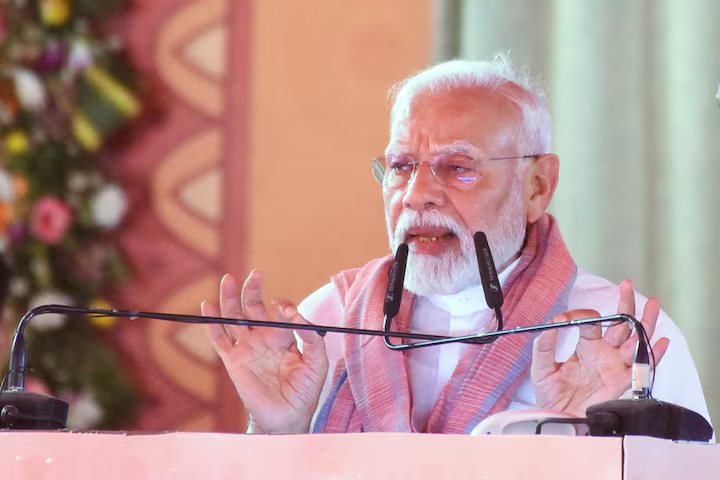Indian Prime Minister Narendra Modi issued a strong statement on May 22, 2025, asserting that Pakistan will not receive a single drop of water that legally belongs to India under international agreements. The comments, delivered during an election rally in Punjab, have intensified regional tensions and drawn reactions from across the political spectrum.
“Pakistan will not get the water which is the right of India’s farmers,” Modi declared. “Every drop will be used for our soil, our people.”
The remark is seen as both a nationalist campaign promise and a strategic message amid ongoing India-Pakistan hostilities. It underscores Modi’s hardline approach to bilateral issues, especially regarding the Indus Waters Treaty, a longstanding water-sharing agreement between the two nuclear-armed neighbors.
💧 The Indus Waters Treaty Under Strain
The Indus Waters Treaty (IWT), brokered by the World Bank in 1960, allocates waters of the Indus River system between the two countries. Under its terms, India controls the eastern rivers (Ravi, Beas, Sutlej), while Pakistan receives the majority flow from the western rivers (Indus, Jhelum, Chenab).
Though the treaty has withstood wars and diplomatic freezes, recent years have seen increased Indian criticism of Pakistan’s use of the agreement, particularly after cross-border tensions flared over terrorism and Kashmir.
Modi’s latest statement suggests a push to fully utilize India’s share of water, which India says has historically gone underused, flowing instead into Pakistan. Experts say the move could lead to dam construction, irrigation expansion, or storage projects on the eastern rivers — developments that could affect downstream water flow into Pakistan.
🇵🇰 Pakistan Reacts Cautiously
Pakistan has yet to issue a formal diplomatic response, but past Indian declarations on water usage have been met with strong warnings from Islamabad, which views any diversion of Indus flows as a provocation and potential violation of the treaty.
“Water is a lifeline issue for Pakistan’s agriculture and population,” said a former Pakistani foreign secretary. “Any attempt to manipulate or restrict flows would be met with political and legal resistance.”
Pakistan has previously sought international arbitration through the World Bank when India initiated hydroelectric projects on western rivers.
🗳️ Domestic Politics and Farmer Vote
Modi’s statement also plays into the politics of Punjab, a water-stressed region with a large farming population. By promising to divert water that “wrongfully” reaches Pakistan, Modi appeals to nationalist sentiments and agricultural voters, many of whom have demanded more irrigation support and infrastructure upgrades.
The Bharatiya Janata Party (BJP) has made water sovereignty a core issue in northern India, particularly in states bordering Pakistan. Critics argue that rhetoric over water access is being used to stoke anti-Pakistan sentiment during a heated campaign season.
🌍 Geopolitical Implications
Analysts warn that linking water resources to geopolitical rivalry is dangerous, especially in an era of climate stress and declining river flows. India and Pakistan both face growing water insecurity, and escalations over shared rivers could trigger diplomatic or even military crises.
International observers have urged both nations to maintain the Indus Waters Treaty and resolve disputes through technical dialogue and neutral arbitration.
“Weaponizing water is a red line,” said a South Asia policy expert. “It turns a development issue into a potential flashpoint.”
⏭️ What to Watch
- Possible Pakistan response via diplomatic channels or public statements
- Clarification from Indian ministries on project plans for eastern rivers
- Whether the World Bank or UN weighs in on treaty stability
- Regional farmer protests or political support in Punjab and Jammu & Kashmir
- Any cross-border military signaling amid worsening rhetoric
Modi’s declaration marks another flashpoint in the already tense India-Pakistan relationship. As water becomes a contested geopolitical asset, the fate of the Indus Waters Treaty — once a symbol of cooperation — hangs in the balance.
Source; Reuters



